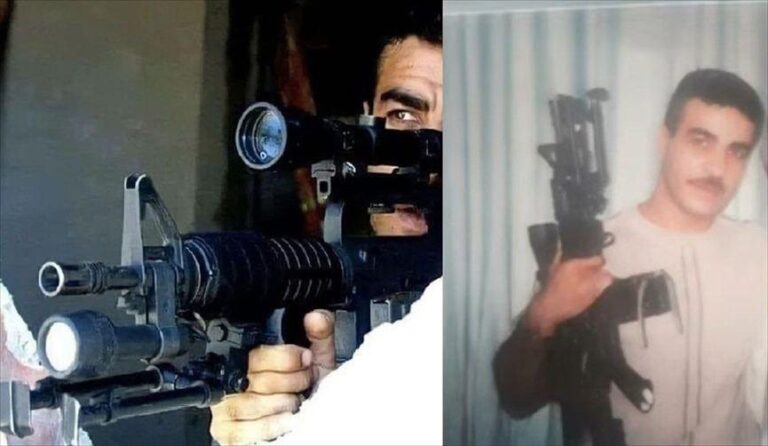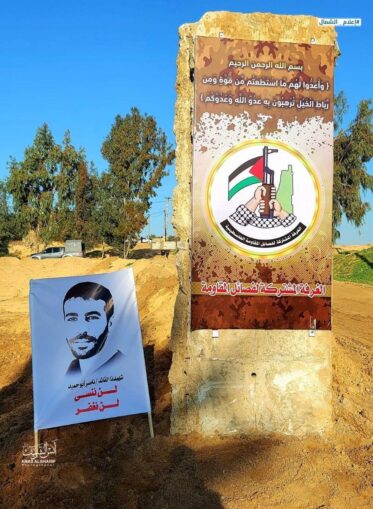
December 20th, marked the one year anniversary of the death of Al Aqsa Brigades co-found Nasser Abu Hmeid, who was assassianted through medical neglect by the Zionist colonial occupation.
Nasser Abu Hmeid died in the morning of Tuesday, 20 December 2022 after falling into a coma, becoming the latest symbol of the devastation caused by the Israeli occupation’s policy of medical negligence. Abu Hmeid, 50, from Al-Amari refugee camp, passed away in Assaf Harofeh hospital, having been repeatedly denied release and return to his family even after his terminal cancer diagnosis and the severe deterioration of his health.
He spent 32 years in and out of Zionist prisons since he was 13 years old and was eventually assassinated by the Zionist prison service through medical neglect after being diagnosed with cancer in August 2021.
Nasser Abu Hmeid, a fighter in the Fateh movement, was born on 5 October 1972 in the Nuseirat refugee camp in Gaza, to a Palestinian family from the displaced village of al-Sawafir, forced from their homes in the Nakba in 1948. He spent a total of 33 years in occupation prisons and was a struggler and leader in the great popular Intifada of 1987 and then the Al-Aqsa Intifada beginning in 2000. He was arrested for the first time at 12 years old, was severely injured and wounded by bullets of the occupation on multiple instances.
Nasser walked the path of resistance, leading and executing operations personally. At least seven settlers and five collaborators were eliminated by Nasser during the second intifada alone, and dozens more were wounded.
As a leader in the armed struggle in Fateh, he was arrested for the last time in 2002 and sentenced to 7 life sentences and 50 years. Four of his brothers are also Palestinian prisoners: Nasr, Mohammed, Sharif and Islam; all of his brothers spent some time in occupation prisons, and one of his brothers, Abdel-Moneim, died in the struggle. The Abu Hmeid family home was demolished five times, and Nasser’s mother became a symbol of the prisoners’ families and their steadfastness. In 2021, he was diagnosed with lung cancer; since that time, he has been denied release on multiple occasions despite the severe deterioration of his health.
After the tumor in his lungs was diagnosed in August 2021, he was returned back to Ashkelon prison and subjected to further treatment delays and only received chemotherapy after the cancer had already spread throughout his body. Even in September of that year, when the occupation’s Assaf Harofeh hospital recommended he be released as he lived his last days, he was instead sent back to the notorious Ramle prison clinic and imprisoned until his last moment.
To this day, the IOF holds Nasser’s body captive, refusing to release it until the end of his seven life sentences. At least eight prisoners, including Sheikh Khader Adnan, have ascended to martyrdom in the zionist prisons in the last year, surpassing all previous records.
In Nasser’s last letter to the people of Palestine he wrote:
I am headed to the end of the road. I am reassured and confident that I am first, Palestinian, and I am proud of that. I leave behind a great and heroic people who will not forget my cause and the struggle of the prisoners. I bow in honor and reverence to all our patient Palestinian people. Words fail to express how much this scene has consoled me.
I am not upset at the end of the road, because at the end of the road, I bid farewell to a great and heroic people. I will join the convoy of the martyrs of Palestine, a large part of which are my companions on my path. I will be happy to meet them. I believe in God’s will and destiny, and I believe in the path I chose against the unjust occupation.
“We will not forget.
We will not forgive.”
